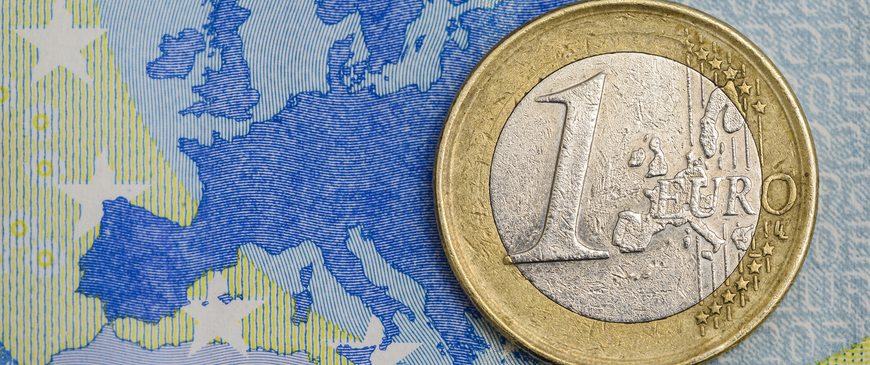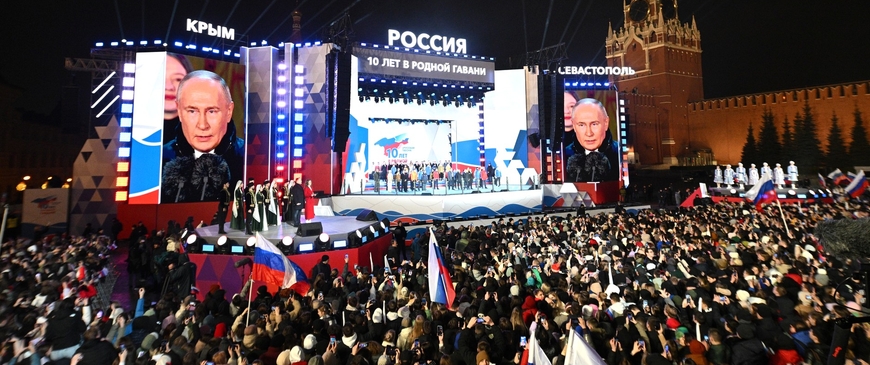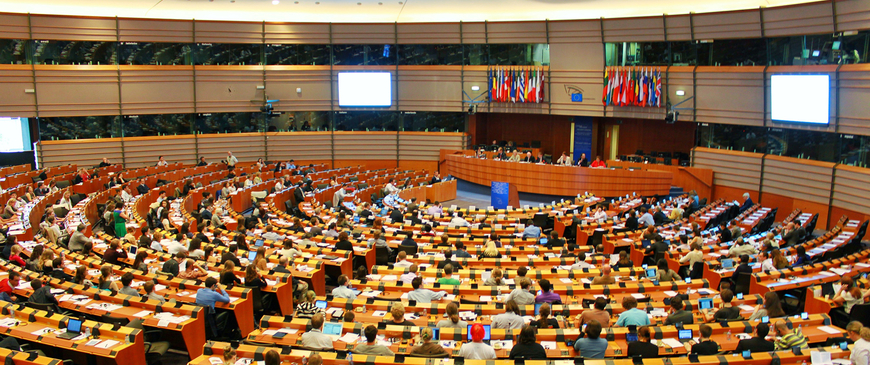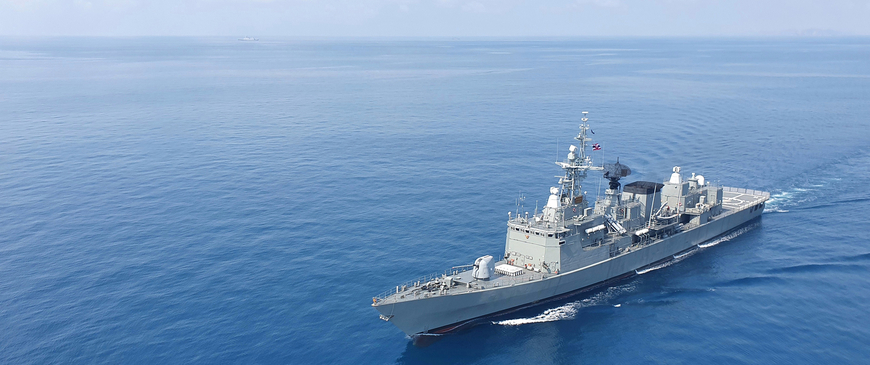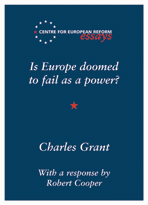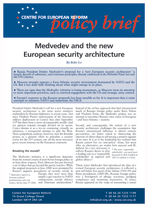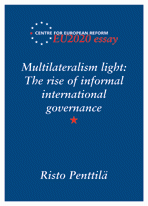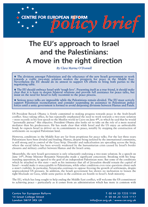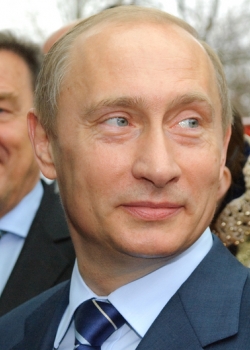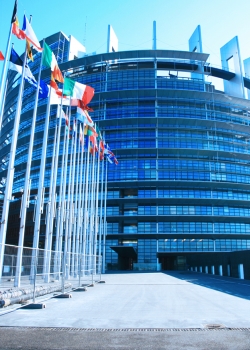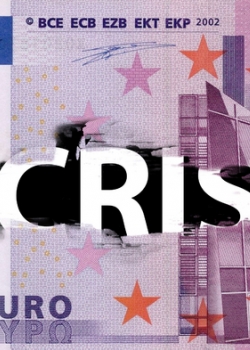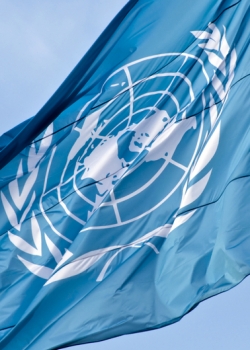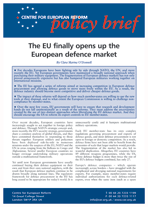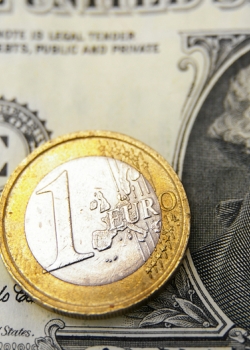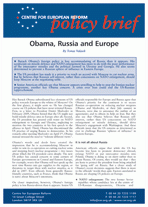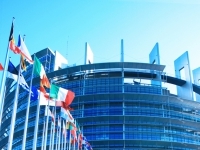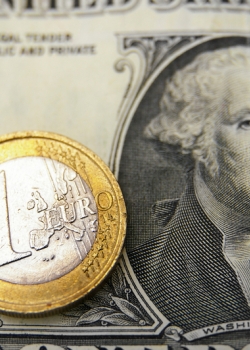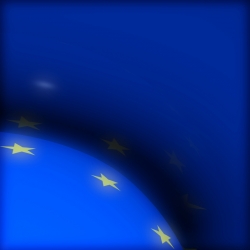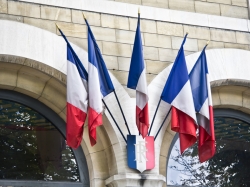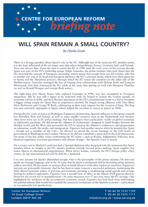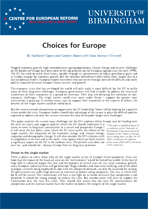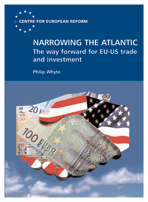Research
Is Europe doomed to fail as a power?
01 July 2009
How relevant is Europe in the emerging multipolar world? On current trends, the EU seems unlikely to be one of the powers that shapes the new order. Divisions among the member-states and a lack of military muscle have weakened the EU's foreign and defence policy.
Medvedev and the new European security architecture
01 July 2009
President Medvedev's call for a new European security architecture is Russia's most active diplomatic initiative in recent times. Yet it lacks substance.
Multilateralism light: The rise of informal international governance
01 July 2009
The economic crisis is accentuating the rise of informal global governance. These days, bodies such as the G8 and the G20 arguably matter as much as more formal, treaty-based organisations.
Britain’s eurosceptics need to come clean
25 June 2009
Britain’s media and political class have a right to be sceptical about the EU, even hostile to it. But they also have an obligation to be honest about the economic implications of a retreat from full membership of the Union. Their failure to do so is dishonest and poses a serious risk to Britain’s prosperity.
The EU's approach to Israel and the Palestinians: A move in the right direction
18 June 2009
Divisions amongst Palestinians and the reluctance of the new Israeli government to work towards a viable two-state solution weaken the prospects for peace in the Middle East.
Can Russia contribute to global governance?
17 June 2009
Like the US, China and India, Russia has never been a big enthusiast for multilateral global governance. When the Russians believe that working through multilateral institutions will suit their interests, they will do so. But Russia’s history, size and traditions make it sceptical of multilateralism.
EU politics after the elections
10 June 2009
EU policies were not the issue that guided most voters in last week’s elections to the European Parliament. The economic crisis and job safety were uppermost in people’s minds.
What the economic crisis will mean for European defence
05 June 2009
There are mounting indications that defence budgets across Europe, not very high in the first place, could fall further because of the economic crisis.
Protectionism and the economic crisis: So far, so good?
01 June 2009
For much of the year, the spectre of the 1930s has loomed large over the global economy.
The EU should do more to support UN peacekeeping in Africa
01 June 2009
The EU likes to highlight its commitment to tackling failed states, addressing humanitarian disasters and bringing order to unstable regions.
The EU finally opens up the European defence market
01 June 2009
For decades Europeans have been fighting side by side. Yet governments have maintained a broadly national approach when purchasing their military equipment.
Winners and losers in the new geopolitics
01 June 2009
Both the global economic crisis and the arrival of Barack Obama are transforming the geopolitical landscape. But how exactly is not yet apparent.
Obama, Russia and Europe
01 June 2009
On the first glance, Barack Obama has subordinated US foreign policy to the interests of Moscow. He has slowed down NATO enlargement, stopped urging Russia to democratise and hinted that the US might not build missile defence sites in Europe.
Why the European elections matter
29 May 2009
Between June 4th and June 7th, Europeans will cast their votes to elect a new European Parliament (EP). Recent opinion polls indicate that they will do so without much enthusiasm. Indeed, there is every chance that the average turnout will be the lowest ever – it has fallen at every election since the first time that Europeans directly elected their MEPs in 1979, and sank to 45.6 per cent in 2004. But despite the prevailing apathy, this election matters.
Issue 66 - 2009
29 May 2009
- Winners and losers in the new geopolitics , Charles Grant
- Protectionism and the economic crisis: So far, so good?, Philip Whyte
- The EU should do more to support UN peacekeeping in Africa, Richard Gowan
Making a success of the EAS
21 May 2009
If the Irish people vote yes to the Lisbon treaty at the second attempt, and the Czechs, Germans and Poles also ratify, the EU will set up an ‘external action service’ or EAS. This new institution promises to make the Union’s common foreign and security policy more effective.
Are the British the new French?
05 May 2009
The British tend to deride France as a hopelessly statist, anti-entrepreneurial country full of bolshie workers intent on extracting disproportionate rewards for their labour and a state too weak to resist them. This characterisation is not wholly inaccurate.
Will Spain remain a small country?
01 May 2009
Spain punches below its weight in EU policy-making. Since Jose Luis Rodriguez Zapatero became prime minister, five years ago, Spanish influence in the EU has diminished.
Choices for Europe
01 May 2009
CER - University of Birmingham
Sluggish economic growth, high unemployment, ageing populations, climate change and security challenges on the borders of Europe have been some of the top priorities on the European agenda since the early 1990s. The EU has tried to tackle these issues, notably through its commitments to reduce greenhouse gases and its Lisbon strategy for economic growth.
Narrowing the Atlantic: The way forward for EU-US trade and investment
29 April 2009
The financial crisis has provoked a dramatic contraction in world trade. With economic activity declining and job losses rising, protectionist pressures are mounting.

